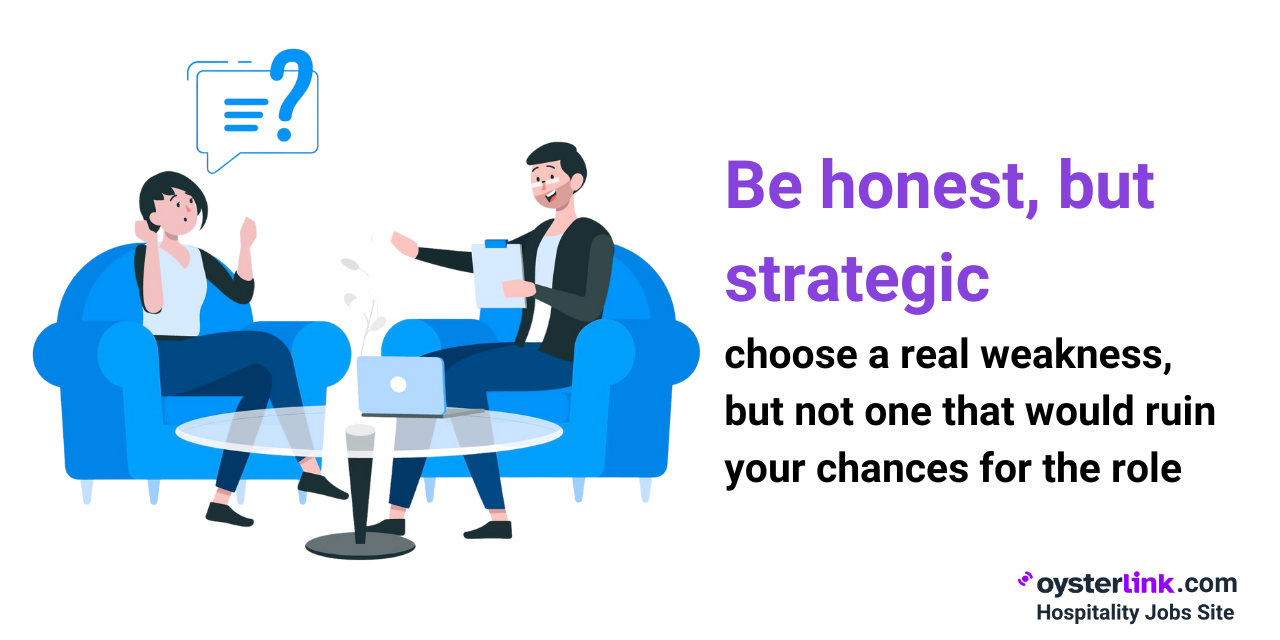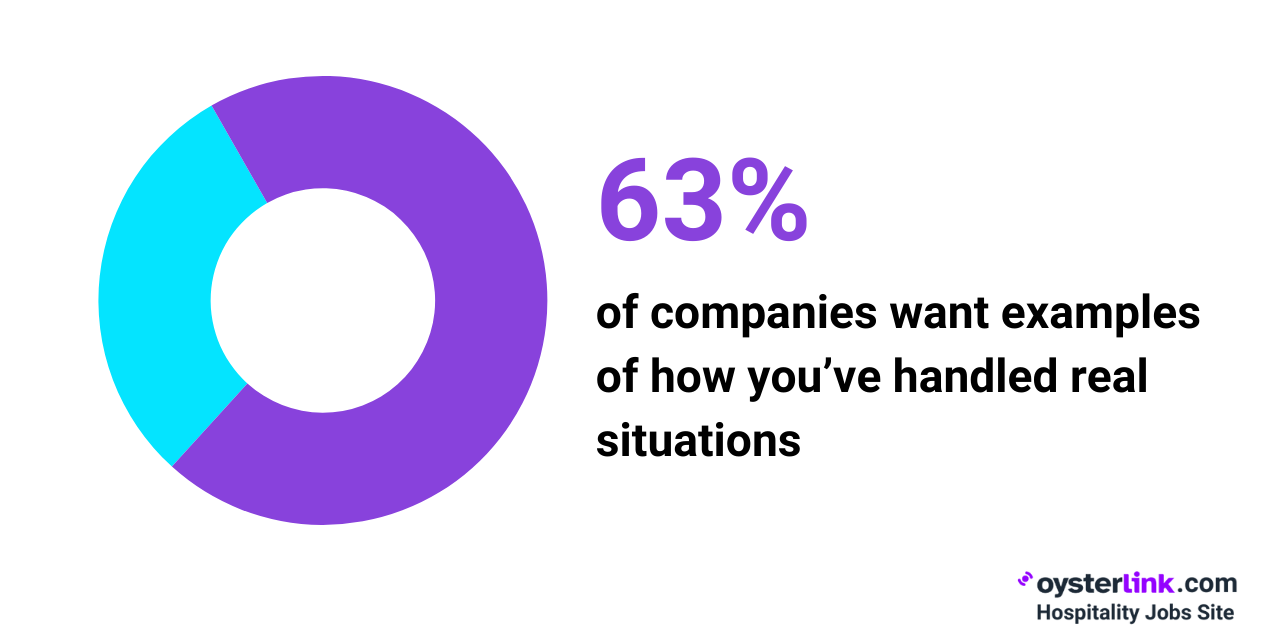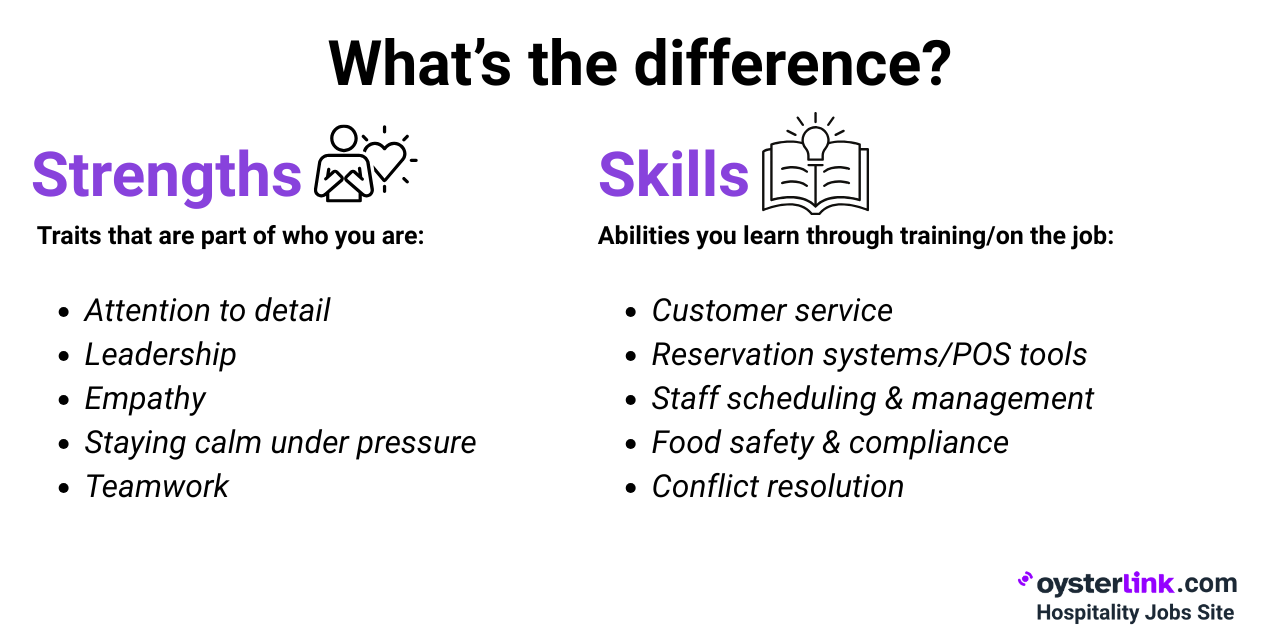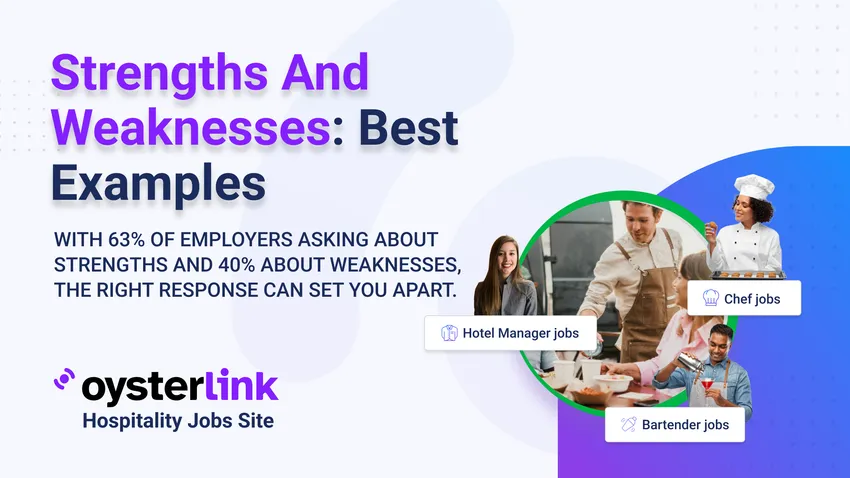Strengths and Weaknesses for Job Interview: 3 Key Takeaways
- 63% of employers ask about strengths, so back yours up with real results.
- 40% of employers ask about weaknesses, frame them as challenges you’re improving.
- Generic answers are forgettable; specific examples are credible and memorable.
Strengths and weaknesses for job interview questions can make or break your first impression.
In this guide, you'll learn how to craft smart, genuine answers that stand out, plus get examples you can adapt for your next interview.
Why Interviewers Ask About Strengths and Weaknesses in Interviews
Interviewers ask about strengths and weaknesses to check:
- Awareness – do you know your skills and limits?
- Improvement – are you trying to get better?
- Work style – how you deal with stress, teamwork, and problems.
- Job fit – do your strengths suit the role, and are weaknesses manageable?
- Pressure – can you handle tough questions calmly?
- Leadership – can you communicate, decide, and guide others?
Source: Jobera
Best Strengths for Job Interview Success
When talking about strengths in an interview, make sure they match the job and company culture. Beforehand, ask yourself:
- How do my strengths fit this role?
- Which strengths helped me most in past jobs?
- What makes me stand out from other candidates?
How to Answer Strengths for Job Interview (With Examples)
When asked “What are your strengths?”, pick strengths that fit your experience and the job role.
A good answer has four parts:
- State the strength
- Give a real example
- Show the impact it had
- Mention you enjoy using it
Common Weaknesses for Job Interview (That Still Work in Your Favor)
When talking about weaknesses in an interview, show them as areas you’re improving, not flaws that block you from doing the job.
Think about:
- What skills am I working to get better at?
- How have I managed this weakness at work?
- Can I frame it as a strength in progress?
By admitting a weakness and showing how you’re improving, you come across as self-aware, willing to grow, and resilient.
How to Answer Weaknesses for Job Interview
When asked “What are your weaknesses?”, the goal isn’t to expose flaws but to show self-awareness and growth.
A strong answer names the weakness, gives a quick example, explains what you did to improve, and highlights what you learned.
Good examples include being overly self-critical, impatient, nervous with public speaking, struggling with criticism, delegation, relying too much on tools, or saying “yes” too often.

5 Tips for Answering the "What Are Your Strengths and Weaknesses?"
Beyond strengths and weaknesses, here are extra tips to ace your interview:
1. Match the strength to the job description
For example, if you’re interviewing for a Restaurant Manager position, the job description might highlight qualities such as:
- Strong leadership and team management
- Excellent communication and customer service
- Time management and organizational skills
2. Be specific when listing your strengths
About 63% of companies use competency-based questions to test candidates’ real skills.
That’s why instead of giving generic strengths, it’s better to make them specific and measurable.

Examples:
- Instead of “Leadership” → say “Experienced in team leadership and strategic decision-making.”
- Instead of “Organizational skills” → say “Efficient in project and task management.”
- Instead of “Creativity” → say “Strong in innovative idea generation and design.”
3. Use specific examples
For each strength, share a specific example or short story that shows how you’ve used it successfully at work:
- Adaptability → “When the menu changed last minute, I quickly adjusted and reorganized the team.”
- Leadership → “I trained new staff, which improved efficiency and teamwork in the kitchen.”
- Problem-solving → “When a supplier delayed a key delivery, I quickly found alternatives."
4. Phrase weaknesses as challenge
Around 40% of employers will ask about weaknesses. A smart approach is to frame them as “challenges” or “areas for improvement.”
This shifts the focus from flaws to growth. A “challenge” suggests something you’re actively working on, while “weakness” sounds fixed.
5. Be authentic
Research shows that candidates who come across as genuine are rated more positively by interviewers.
In fact, studies of mock interviews found that both what you say and how you say it can make you seem more authentic, which often leads to stronger interview performance.
Source: Springer Nature
Strengths vs. Skills in Job Interviews: What’s the Difference?
Some people ask: “Are strengths and skills the same?” The answer is no.
- A strength is an inborn trait that shapes how you approach work — like resilience, adaptability, or creativity.
- A skill is something you learn and practice — like coding, speaking another language, or managing a project.

Often, a strength is the foundation for building a skill. For example, if adaptability is your strength, it can help you learn agile methods more easily.
Conclusion: Strengths & Weaknesses Can Make or Break Your Interview
Answering questions about strengths and weaknesses isn’t about perfection, it’s about self-awareness, growth, and fit.
At the end of the day, interviewers want more than a list of traits, they want proof that you know yourself, can keep improving, and will thrive in their team.
Be authentic, confident, and humble. That combination leaves the strongest impression.









Loading comments...